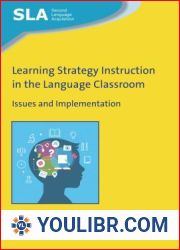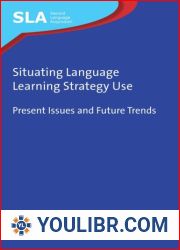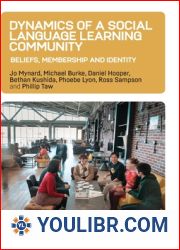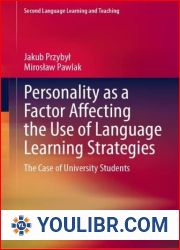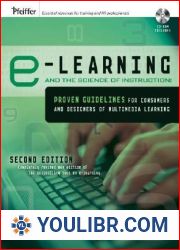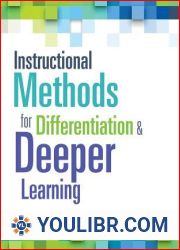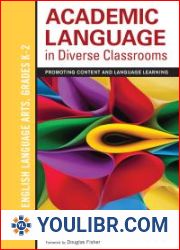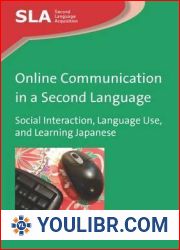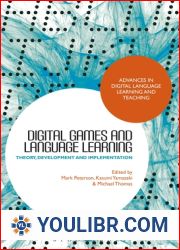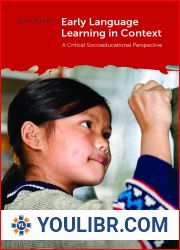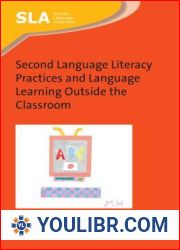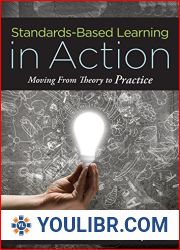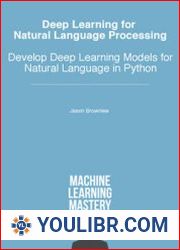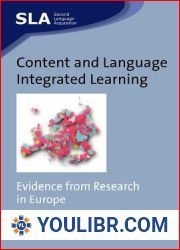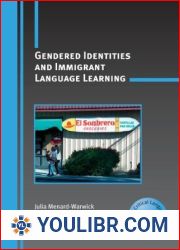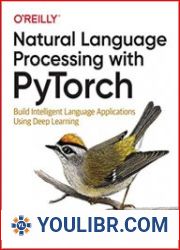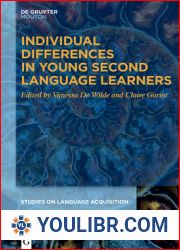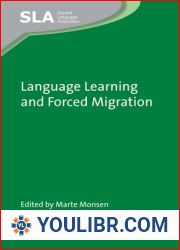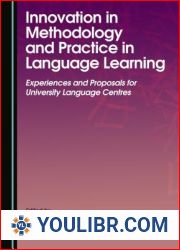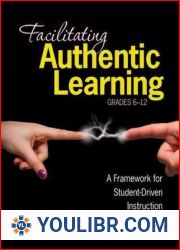
BOOKS - Learning Strategy Instruction in the Language Classroom: Issues and Implement...

Learning Strategy Instruction in the Language Classroom: Issues and Implementation (Second Language Acquisition, 132) (Volume 136)
Author: Anna Uhl Chamot
Year: May 10, 2019
Format: PDF
File size: PDF 5.7 MB
Language: English
Year: May 10, 2019
Format: PDF
File size: PDF 5.7 MB
Language: English
This comprehensive collection, comprising both theoretical and practical contributions, is unique in its focus on language learning strategy instruction (LLSI). The chapters, written by leading international experts, embrace both sociolinguistic and psycholinguistic perspectives. The issues presented include different models of strategy instruction and how they can be tailored according to context and the learners' age and attainment level. The collection will be an important resource for researchers in the field, both for its critical perspectives and its guidance on collaborating with teachers to design interventions to implement strategy instruction. It also identifies key areas for research, including the teaching of less studied groups of strategies such as grammar and affective strategies. The book will prove equally valuable to language teachers through the provision of detailed teaching materials and tasks. Those engaged in professional development, whether pre- or in-service teacher education, will find a wealth of concrete ideas for sessions, courses and assignments.
Il libro arning Strategy Administration in the Language Classroom Issues and Influence Secondary Language Acquisition 132 Volume 136 fornisce una panoramica completa dello stato attuale della strategia di apprendimento della lingua (LLSI) e della sua implementazione nell'apprendimento della seconda lingua. Il libro è suddiviso in diversi capitoli, ciascuno dedicato a un aspetto specifico della LLSI, dalle prospettive teoriche alle applicazioni pratiche. In questo capitolo, gli autori forniscono una panoramica dell'importanza di LLSI nell'apprendimento della seconda lingua, sottolineando la necessità di un approccio più dettagliato all'apprendimento del linguaggio che tenga conto delle esigenze individuali degli studenti e degli stili di apprendimento. Sostengono che i metodi tradizionali di apprendimento del linguaggio spesso trascurano l'autorità e l'autonomia degli studenti, e che LLSI offre un modo più inclusivo ed efficace per imparare le lingue. Capitolo 2: prospettive sociolinguistiche di LLSI Questo capitolo affronta gli aspetti sociolinguistici della LLSI e studia come le strategie di apprendimento della lingua siano formate da fattori culturali e sociali. Gli autori discutono di come le strategie di apprendimento del linguaggio possano essere influenzate dall'origine, dall'identità e dal contesto degli studenti e di come questi fattori possano influire sull'efficacia della LLSI. Capitolo terzo: prospettive psicolinguistiche di LLSI In questo capitolo gli autori approfondiscono gli aspetti psicolinguistici della LLSI, considerando come i fattori cognitivi e affettivi influenzino le strategie di apprendimento del linguaggio. livre « arning Strategy Instruction in the Language Classroom Issues and Implementation Second Language Acquisition 132 Volume 136 » donne un aperçu complet de l'état actuel de l'apprentissage de la stratégie d'apprentissage des langues (LLSI) et de sa mise en œuvre dans l'apprentissage de la langue seconde. livre est divisé en plusieurs chapitres, chacun traitant d'un aspect particulier de LLSI, des perspectives théoriques aux applications pratiques. Dans ce chapitre, les auteurs donnent un aperçu de l'importance de la LLSI dans l'apprentissage de la langue seconde, soulignant la nécessité d'une approche plus détaillée de l'apprentissage de la langue qui tienne compte des besoins individuels des apprenants et des styles d'apprentissage. Ils affirment que les méthodes traditionnelles d'enseignement des langues négligent souvent l'autorité et l'autonomie des apprenants et que l'ILSL offre un moyen plus inclusif et plus efficace d'enseigner les langues. Chapitre 2 : s perspectives sociolinguistiques de l'ILSL Ce chapitre traite des aspects sociolinguistiques de l'ILSL, étudie comment les stratégies d'apprentissage des langues sont façonnées par des facteurs culturels et sociaux. s auteurs discutent de la façon dont les stratégies d'apprentissage des langues peuvent être influencées par l'origine, l'identité et le contexte des apprenants, et de la façon dont ces facteurs peuvent influencer l'efficacité de l'ILSL. Chapitre 3 : s perspectives psycholinguistiques de l'ILSJ Dans ce chapitre, les auteurs examinent les aspects psycholinguistiques de l'ILSJ en examinant comment les facteurs cognitifs et affectifs influencent les stratégies d'apprentissage des langues. Książka Uczenie się strategii Instrukcja w zakresie zagadnień w klasie językowej i implementacji Second Language Acquisition 132 Tom 136 zapewnia kompleksowy przegląd aktualnego stanu uczenia się strategii językowej (LLSI) i jej wdrożenia w nabywaniu drugiego języka. Książka podzielona jest na kilka rozdziałów, z których każdy zajmuje się konkretnym aspektem LLSI, począwszy od teoretycznych perspektyw po praktyczne zastosowania. W tym rozdziale autorzy przedstawiają przegląd znaczenia LLSI w nabywaniu drugiego języka, podkreślając potrzebę bardziej szczegółowego podejścia do nauki języka, uwzględniającego indywidualne potrzeby studentów i style nauki. Twierdzą, że tradycyjne metody nauczania języka często zaniedbują autorytet i autonomię studentów, a LLSI oferuje bardziej integracyjny i skuteczny sposób nauczania języków. Rozdział drugi: Perspektywy socjolingwistyczne LLSI Ten rozdział analizuje socjolingwistyczne aspekty LLSI, badając, jak strategie uczenia się języków są kształtowane przez czynniki kulturowe i społeczne. Autorzy omawiają, w jaki sposób na strategie uczenia się języków może wpływać pochodzenie, tożsamość i kontekst studentów oraz jak czynniki te mogą wpływać na skuteczność LLSI. Rozdział trzeci: Perspektywy psycholingwistyczne LLSI W tym rozdziale autorzy zagłębiają się w psycholingwistyczne aspekty LLSI, rozważając, jak czynniki poznawcze i afektywne wpływają na strategie uczenia się języka. 언어 교실 문제 및 구현 2 차 언어 획득 132 권의 책 학습 전략 수업은 현재 언어 학습 전략 (LLSI) 학습 상태 및 제 2 언어 획득 구현에 대한 포괄적 인 개요를 제공합니다. 이 책은 이론적 관점에서 실제 응용에 이르기까지 LLSI의 특정 측면을 다루는 여러 장으로 나뉩니다. 이 장에서 저자는 제 2 언어 습득에서 LLSI의 중요성에 대한 개요를 제공하여 개별 학생의 요구와 학습 스타일을 고려한 언어 학습에 대한보다 자세한 접근 방식의 필요성을 강조합니다. 그들은 전통적인 언어 교육 방법이 종종 학생의 권위와 자율성을 무시하고 LLSI는 언어를 가르치는보다 포괄적이고 효과적인 방법을 제공한다고 주장 2 장: Sociolinguistic Perspectives LLSI이 장은 LLSI의 사회 언어 적 측면을 조사하여 언어 학습 전략이 문화적, 사회적 요인에 의해 어떻게 형성되는지 탐구합니다. 저자는 언어 학습 전략이 학생들의 배경, 정체성 및 상황에 의해 어떻게 영향을받을 수 있는지, 그리고 이러한 요소들이 LLSI의 효과에 어떤 영향을 미칠 수 있는지에 대해 논의합니다. 3 장: Psycholiginal Perspectives LLSI이 장에서 저자는인지 적 및 정서적 요소가 언어 학습 전략에 어떤 영향을 미치는지 고려하여 LLSI의 심리 언어 적 측면을 탐구합니다. В книге «arning Strategy Instruction in the Language Classroom Issues and Implementation Second Language Acquisition 132 Volume 136» представлен всесторонний обзор текущего состояния обучения стратегии изучения языка (LLSI) и его реализации при освоении второго языка. Книга разделена на несколько глав, каждая из которых посвящена конкретному аспекту LLSI, от теоретических перспектив до практических применений. В этой главе авторы представляют обзор важности LLSI при освоении второго языка, подчеркивая необходимость более детального подхода к обучению языку, учитывающего индивидуальные потребности учащихся и стили обучения. Они утверждают, что традиционные методы обучения языку часто пренебрегают авторитетом и автономией учащихся, и что LLSI предлагает более инклюзивный и эффективный способ обучения языкам. Глава вторая: Социолингвистические перспективы LLSI В этой главе рассматриваются социолингвистические аспекты LLSI, изучается, как стратегии изучения языка формируются культурными и социальными факторами. Авторы обсуждают, как на стратегии изучения языка могут влиять происхождение, идентичность и контекст учащихся, и как эти факторы могут влиять на эффективность LLSI. Глава третья: Психолингвистические перспективы LLSI В этой главе авторы углубляются в психолингвистические аспекты LLSI, рассматривая, как когнитивные и аффективные факторы влияют на стратегии изучения языка. يقدم كتاب تعليم استراتيجية التعلم في قضايا فصول اللغة وتنفيذ اكتساب اللغة الثانية 132 المجلد 136 لمحة عامة شاملة عن الوضع الحالي لاستراتيجية تعلم اللغة (LLSI) وتنفيذها في اكتساب اللغة الثانية. ينقسم الكتاب إلى عدة فصول، يتناول كل منها جانبًا محددًا من LLSI، بدءًا من وجهات النظر النظرية إلى التطبيقات العملية. في هذا الفصل، يقدم المؤلفون لمحة عامة عن أهمية LLSI في اكتساب اللغة الثانية، مؤكدين على الحاجة إلى نهج أكثر تفصيلاً لتعلم اللغة يأخذ في الاعتبار احتياجات الطلاب الفردية وأساليب التعلم. يجادلون بأن أساليب تدريس اللغة التقليدية غالبًا ما تهمل سلطة الطلاب واستقلاليتهم، وأن LLSI تقدم طريقة أكثر شمولاً وفعالية لتعليم اللغات. الفصل الثاني: المنظورات اللغوية الاجتماعية LLSI يبحث هذا الفصل في الجوانب اللغوية الاجتماعية لـ LLSI، ويستكشف كيفية تشكيل استراتيجيات تعلم اللغة من خلال العوامل الثقافية والاجتماعية. يناقش المؤلفون كيف يمكن أن تتأثر استراتيجيات تعلم اللغة بخلفيات الطلاب وهوياتهم وسياقاتهم، وكيف يمكن أن تؤثر هذه العوامل على فعالية LLSI. الفصل الثالث: وجهات نظر نفسية لغوية LLSI في هذا الفصل، يتعمق المؤلفون في الجوانب النفسية اللغوية لـ LLSI من خلال النظر في كيفية تأثير العوامل المعرفية والعاطفية على استراتيجيات تعلم اللغة. 語学教室における学習戦略指導と実施第二言語習得132巻136では、現在の言語学習戦略(LLSI)の学習状況と第二言語習得における実装について包括的に概説しています。本はいくつかの章に分かれており、それぞれがLLSIの特定の側面を扱い、理論的な観点から実用的な応用に至るまで。この章では、第二言語習得におけるLLSIの重要性の概要を説明し、個々の学生のニーズと学習スタイルを考慮した言語学習へのより詳細なアプローチの必要性を強調している。彼らは、伝統的な言語教育方法は学生の権威と自治を無視することが多く、LLSIは言語を教えるためのより包括的で効果的な方法を提供していると主張している。第2章:社会言語学的視点LLSIこの章では、LLSIの社会言語学的側面について考察し、言語学習戦略が文化的および社会的要因によってどのように形成されるかを探求します。著者たちは、言語学習戦略が学生の背景、アイデンティティ、コンテキストによってどのように影響されるか、そしてこれらの要因がLLSIの有効性にどのような影響を与えるかについて議論している。Chapter 3: Psycholinguistic Perspectives LLSIこの章では、認知的要因と感情的要因が言語学習戦略にどのように影響するかを考察し、LLSIの心理言語学的側面を考察する。 הספר arning Strategy Instruction in the Language Classure Second Class Exchange 132 Volume 136 מספק סקירה מקיפה של המצב הנוכחי של אסטרטגיית לימוד השפה (LLSI) והיישום שלה ברכישת שפה שנייה. הספר מחולק למספר פרקים, שכל אחד מהם עוסק בהיבט מסוים של LLSI, החל מנקודות מבט תיאורטיות ועד ליישומים מעשיים. בפרק זה, המחברים מספקים סקירה של חשיבותה של LLSI ברכישת שפה שנייה, המדגישה את הצורך בגישה מפורטת יותר ללמידת שפה אשר לוקחת בחשבון צרכים אישיים של תלמידים וסגנונות למידה. הם טוענים ששיטות לימוד השפה המסורתיות מזניחות לעתים קרובות את סמכות התלמידים ואת האוטונומיה, ושLLSI מציעה דרך כוללת ויעילה יותר ללימוד שפות. פרק שני: פרספקטיבות סוציו-לשוניות LLSI פרק זה בוחן את ההיבטים הסוציו-לשוניים של LLSI, ובוחן כיצד אסטרטגיות למידת השפה מעוצבות על ידי גורמים תרבותיים וחברתיים. המחברים דנים כיצד אסטרטגיות למידת שפה עשויות להיות מושפעות מרקע, זהויות והקשרים של תלמידים, וכיצד גורמים אלה עשויים להשפיע על יעילותו של LLSI. בפרק זה, המחברים מתעמקים בהיבטים הפסיכו-לשוניים של LLSI בכך שהם שוקלים כיצד גורמים קוגניטיביים ורגשניים משפיעים על אסטרטגיות למידת השפה. libro arning Strategy Instruction in the Language Classroom Issues and Implementation Second Language Acquisition 132 Volume 136 ofrece una visión general completa del estado actual del aprendizaje de la estrategia de aprendizaje de idiomas (LLSI) y su implementación en Dominar un segundo idioma. libro se divide en varios capítulos, cada uno dedicado a un aspecto específico de la LLSI, desde perspectivas teóricas hasta aplicaciones prácticas. En este capítulo, los autores presentan una visión general de la importancia de la LLSI en el dominio de la segunda lengua, destacando la necesidad de un enfoque más detallado en el aprendizaje de la lengua que tenga en cuenta las necesidades individuales de los alumnos y los estilos de aprendizaje. Argumentan que los métodos tradicionales de enseñanza de idiomas a menudo descuidan la autoridad y autonomía de los estudiantes, y que la LLSI ofrece una forma más inclusiva y efectiva de aprender idiomas. Capítulo dos: Perspectivas sociolingüísticas de la LLSI En este capítulo se abordan los aspectos sociolingüísticos de la LLSI, se estudia cómo las estrategias de aprendizaje de la lengua se forman por factores culturales y sociales. autores discuten cómo las estrategias de aprendizaje de idiomas pueden ser influenciadas por el origen, la identidad y el contexto de los estudiantes, y cómo estos factores pueden influir en la eficacia de la LLSI. Capítulo tres: Perspectivas psicolingüísticas de la LLSI En este capítulo, los autores profundizan en los aspectos psicolingüísticos de la LLSI, considerando cómo influyen los factores cognitivos y afectivos en las estrategias de aprendizaje del lenguaje. The book 'Learning Strategy Instruction in the Language Classroom Issues and Implementation Second Language Acquisition 132 Volume 136' provides a comprehensive overview of the current state of language learning strategy instruction (LLSI) and its implementation in second language acquisition. The book is divided into several chapters, each one focusing on a specific aspect of LLSI, from theoretical perspectives to practical applications. Chapter One: Introduction to Learning Strategy Instruction In this chapter, the authors provide an overview of the importance of LLSI in second language acquisition, highlighting the need for a more nuanced approach to language teaching that takes into account the learners' individual needs and learning styles. They argue that traditional methods of language teaching often neglect the learners' agency and autonomy, and that LLSI offers a more inclusive and effective way of teaching languages. Chapter Two: Sociolinguistic Perspectives on LLSI This chapter explores the sociolinguistic aspects of LLSI, examining how language learning strategies are shaped by cultural and social factors. The authors discuss how language learning strategies can be influenced by the learners' background, identity, and context, and how these factors can impact the effectiveness of LLSI. Chapter Three: Psycholinguistic Perspectives on LLSI In this chapter, the authors delve into the psycholinguistic aspects of LLSI, looking at how cognitive and affective factors influence language learning strategies. O livro «arning Strategy Direction in the Language Classroom Issues and Implementation Segunda Implementação de Linguagem 132 Volume 136» apresenta uma revisão completa do estado atual da estratégia de aprendizado da língua (LLSI) e de sua implementação no aprendizado da segunda língua. O livro é dividido em vários capítulos, cada um sobre um aspecto específico da LLSI, desde perspectivas teóricas até aplicações práticas. Neste capítulo, os autores apresentam uma visão geral da importância da LLSI no aprendizado da segunda língua, destacando a necessidade de uma abordagem mais detalhada do aprendizado da língua que atenda às necessidades individuais dos alunos e aos estilos de aprendizagem. Eles afirmam que os métodos tradicionais de ensino da língua muitas vezes desrespeitam a credibilidade e a autonomia dos alunos, e que a LLSI oferece uma forma mais inclusiva e eficaz de aprender as línguas. Capítulo 2: As perspectivas sociolinguísticas da LLSI Este capítulo aborda os aspectos sociolinguísticos da LLSI e estuda como as estratégias de aprendizado da língua são formadas por fatores culturais e sociais. Os autores discutem como as estratégias de aprendizado da língua podem ser influenciadas pela origem, identidade e contexto dos alunos, e como esses fatores podem influenciar a eficácia da LLSI. Capítulo terceiro: Perspectivas psicolinguísticas LLSI Neste capítulo, os autores se aprofundam nos aspectos psicolinguísticos da LLSI, considerando como os fatores cognitivos e afetivos influenciam as estratégias de aprendizado da língua. Das Buch „arning Strategy Instruction in the Language Classroom Issues and Implementation Second Language Acquisition 132 Volume 136“ gibt einen umfassenden Überblick über den aktuellen rnstand der Language arning Strategy (LLSI) und deren Umsetzung beim Erlernen einer zweiten Sprache. Das Buch ist in mehrere Kapitel unterteilt, die sich jeweils einem bestimmten Aspekt des LLSI widmen, von theoretischen Perspektiven bis hin zu praktischen Anwendungen. In diesem Kapitel geben die Autoren einen Überblick über die Bedeutung des LLSI beim Erlernen einer zweiten Sprache und betonen die Notwendigkeit eines detaillierteren Ansatzes für den Sprachunterricht, der die individuellen Bedürfnisse und rnstile der Schüler berücksichtigt. e argumentieren, dass traditionelle Methoden des Sprachunterrichts oft die Autorität und Autonomie der Schüler vernachlässigen und dass das LLSI einen integrativeren und effektiveren Weg bietet, Sprachen zu unterrichten. Kapitel zwei: Soziolinguistische Perspektiven des LLSI Dieses Kapitel untersucht die soziolinguistischen Aspekte des LLSI und untersucht, wie Strategien des Sprachenlernens durch kulturelle und soziale Faktoren beeinflusst werden. Die Autoren diskutieren, wie Sprachlernstrategien durch die Herkunft, Identität und den Kontext der rnenden beeinflusst werden können und wie diese Faktoren die Wirksamkeit des LLSI beeinflussen können. Kapitel drei: Psycholinguistische Perspektiven des LLSI In diesem Kapitel gehen die Autoren auf die psycholinguistischen Aspekte des LLSI ein und untersuchen, wie kognitive und affektive Faktoren Sprachlernstrategien beeinflussen. arning Strategy Instruction in the Language Classroom Issues and Implementation Second Language Acquisition 132 Cilt 136, dil öğrenme stratejisi (LLSI) öğreniminin mevcut durumu ve ikinci dil ediniminde uygulanması hakkında kapsamlı bir genel bakış sunar. Kitap, her biri teorik perspektiflerden pratik uygulamalara kadar LLSI'nin belirli bir yönünü ele alan birkaç bölüme ayrılmıştır. Bu bölümde yazarlar, LLSI'nin ikinci dil edinimindeki önemine genel bir bakış sunarak, bireysel öğrenci ihtiyaçlarını ve öğrenme stillerini dikkate alan dil öğrenimine daha ayrıntılı bir yaklaşıma duyulan ihtiyacı vurgulamaktadır. Geleneksel dil öğretim yöntemlerinin genellikle öğrenci otoritesini ve özerkliğini ihmal ettiğini ve LLSI'nin dil öğretmek için daha kapsayıcı ve etkili bir yol sunduğunu savunuyorlar. İkinci Bölüm: Sosyolinguistik Perspektifler LLSI Bu bölüm, dil öğrenme stratejilerinin kültürel ve sosyal faktörler tarafından nasıl şekillendirildiğini araştırarak LLSI'nin sosyolinguistik yönlerini inceler. Yazarlar, dil öğrenme stratejilerinin öğrencilerin geçmişlerinden, kimliklerinden ve bağlamlarından nasıl etkilenebileceğini ve bu faktörlerin LLSI'nin etkinliğini nasıl etkileyebileceğini tartışmaktadır. Üçüncü Bölüm: Psikolinguistik Perspektifler LLSI Bu bölümde, yazarlar bilişsel ve duyuşsal faktörlerin dil öğrenme stratejilerini nasıl etkilediğini göz önünde bulundurarak LLSI'nin psikolinguistik yönlerini inceliyorlar. descargar archivo pdf להוריד קובץ PDF pdf dosyasını indir download pdf file télécharger le fichier pdf скачать файл PDF Scarica il file pdf descarregar ficheiro pdf download pdf file pdf 파일 다운로드 PDF-Datei herunterladen تنزيل ملف pdf 下载 pdf 文件 PDFファイルをダウンロード pobierz plik pdf
Esta coletânea completa, que inclui contribuições teóricas e práticas, é única na sua orientação para o aprendizado da estratégia de aprendizado da língua (LLSI). Os capítulos escritos pelos principais especialistas internacionais abrangem as perspectivas sociolinguísticas e psicolinguísticas. As questões apresentadas incluem diferentes modelos de aprendizagem da estratégia e como eles podem ser adaptados de acordo com o contexto, a idade e o nível de desempenho dos alunos. A coletânea será um recurso importante para os pesquisadores nesta área, tanto para suas perspectivas críticas quanto para seu manual de cooperação com os professores para a elaboração de atividades de instrução estratégica. Ele também define áreas essenciais para a pesquisa, incluindo a formação de grupos menos estudados de estratégias, como gramática e estratégias afetivas. O livro será igualmente valioso para os professores de línguas por fornecer material didático e tarefas detalhadas. Aqueles que se dedicam ao aperfeiçoamento, seja na formação de professores antes ou sem trabalho, encontrarão muitas ideias específicas para sessões, cursos e tarefas.
Этот всеобъемлющий сборник, включающий как теоретический, так и практический вклад, уникален своей направленностью на обучение стратегии изучения языка (LLSI). Главы, написанные ведущими международными экспертами, охватывают как социолингвистические, так и психолингвистические перспективы. Представленные вопросы включают различные модели обучения стратегии и способы их адаптации в соответствии с контекстом и возрастом учащихся и уровнем успеваемости. Сборник станет важным ресурсом для исследователей в этой области, как для его критических перспектив, так и для его руководства по сотрудничеству с учителями для разработки мероприятий по реализации стратегических инструкций. Он также определяет ключевые области для исследований, включая обучение менее изученных групп стратегий, таких как грамматика и аффективные стратегии. Книга окажется не менее ценной для учителей языка благодаря предоставлению подробных учебных материалов и заданий. Те, кто занимается повышением квалификации, будь то обучение учителей до или без отрыва от работы, найдут множество конкретных идей для сессий, курсов и заданий.
Ce recueil complet, qui comprend à la fois des contributions théoriques et pratiques, est unique par son orientation vers l'apprentissage de la stratégie d'apprentissage des langues (LLSI). Les chapitres, écrits par des experts internationaux de premier plan, couvrent à la fois les perspectives sociolinguistiques et psycholinguistiques. Les questions présentées comprennent les différents modèles d'apprentissage de la stratégie et la façon dont ils peuvent être adaptés au contexte, à l'âge et au niveau de réussite des élèves. Le recueil sera une ressource importante pour les chercheurs dans ce domaine, à la fois pour ses perspectives critiques et pour son guide sur la collaboration avec les enseignants pour le développement des activités de mise en œuvre des instructions stratégiques. Il identifie également les domaines clés de la recherche, y compris l'apprentissage de groupes de stratégies moins étudiés, comme la grammaire et les stratégies affectives. Le livre s'avérera tout aussi précieux pour les enseignants de langues grâce à la fourniture de matériel didactique détaillé et de tâches. Ceux qui se consacrent au perfectionnement professionnel, qu'il s'agisse de la formation des enseignants avant ou en cours d'emploi, trouveront de nombreuses idées concrètes pour les sessions, les cours et les tâches.
Esta amplia colección, que incluye contribuciones tanto teóricas como prácticas, es única por su enfoque en la enseñanza de la estrategia de aprendizaje de idiomas (LLSI). Los capítulos escritos por los principales expertos internacionales abarcan tanto perspectivas sociolingüísticas como psicolingüísticas. Las preguntas presentadas incluyen los diferentes modelos de aprendizaje de la estrategia y cómo se pueden adaptar según el contexto, la edad y el nivel de rendimiento de los alumnos. El compendio será un importante recurso para los investigadores en este campo, tanto por sus perspectivas críticas como por su guía de colaboración con los docentes para el desarrollo de actividades de implementación de instrucciones estratégicas. También identifica áreas clave para la investigación, incluyendo el aprendizaje de grupos de estrategias menos estudiadas, como la gramática y las estrategias afectivas. El libro resultará igualmente valioso para los profesores de idiomas mediante la provisión de materiales didácticos detallados y tareas. Los que se dedican al perfeccionamiento, ya sea la formación de maestros antes o en el trabajo, encontrarán muchas ideas específicas para sesiones, cursos y tareas.
Questa raccolta completa, che include sia un contributo teorico che pratico, è unicamente incentrata sull'apprendimento della strategia di apprendimento della lingua (LLSI). I capitoli, scritti da importanti esperti internazionali, riguardano le prospettive sia sociolinguistiche che psicolinguistiche. Le domande presentate includono diversi modelli di strategia di apprendimento e come adattarli al contesto, all'età e al livello di rendimento degli studenti. La raccolta sarà una risorsa importante per i ricercatori in questo campo, sia per le sue prospettive critiche che per la sua guida alla collaborazione con gli insegnanti per sviluppare le attività di attuazione delle istruzioni strategiche. Definisce anche aree chiave per la ricerca, tra cui l'apprendimento di gruppi meno studiati di strategie come la grammatica e le strategie affettive. Il libro sarà altrettanto prezioso per gli insegnanti di lingua, fornendo materiale didattico e compiti dettagliati. Coloro che si occupano di migliorare le competenze, che siano la formazione degli insegnanti prima o dopo il lavoro, troveranno molte idee concrete per sessioni, corsi e compiti.
Diese umfassende Sammlung, die sowohl theoretische als auch praktische Beiträge enthält, ist einzigartig in ihrem Fokus auf das Erlernen einer Sprachlernstrategie (LLSI). Die von führenden internationalen Experten verfassten Kapitel decken sowohl soziolinguistische als auch psycholinguistische Perspektiven ab. Zu den vorgestellten Fragen gehören verschiedene Lernmodelle der Strategie und wie sie je nach Kontext, Alter und Leistungsstand der Schüler angepasst werden können. Die Sammlung wird eine wichtige Ressource für Forscher in diesem Bereich sein, sowohl für ihre kritischen Perspektiven als auch für ihre Anleitung zur Zusammenarbeit mit Lehrern, um Aktivitäten zur Umsetzung strategischer Anweisungen zu entwickeln. Es identifiziert auch Schlüsselbereiche für die Forschung, einschließlich des Lernens weniger erforschter Strategiegruppen wie Grammatik und affektive Strategien. Das Buch wird sich als ebenso wertvoll für Sprachlehrer erweisen, da es detaillierte Unterrichtsmaterialien und Aufgaben bietet. Wer sich in der Weiterbildung engagiert, sei es in der Lehrerausbildung vor oder am Arbeitsplatz, findet viele konkrete Ideen für Sitzungen, Kurse und Aufgaben.
This comprehensive collection, comprising both theoretical and practical contributions, is unique in its focus on language learning strategy instruction (LLSI). The chapters, written by leading international experts, embrace both sociolinguistic and psycholinguistic perspectives. The issues presented include different models of strategy instruction and how they can be tailored according to context and the learners' age and attainment level. The collection will be an important resource for researchers in the field, both for its critical perspectives and its guidance on collaborating with teachers to design interventions to implement strategy instruction. It also identifies key areas for research, including the teaching of less studied groups of strategies such as grammar and affective strategies. The book will prove equally valuable to language teachers through the provision of detailed teaching materials and tasks. Those engaged in professional development, whether pre- or in-service teacher education, will find a wealth of concrete ideas for sessions, courses and assignments.
Esta coletânea completa, que inclui contribuições teóricas e práticas, é única na sua orientação para o aprendizado da estratégia de aprendizado da língua (LLSI). Os capítulos escritos pelos principais especialistas internacionais abrangem as perspectivas sociolinguísticas e psicolinguísticas. As questões apresentadas incluem diferentes modelos de aprendizagem da estratégia e como eles podem ser adaptados de acordo com o contexto, a idade e o nível de desempenho dos alunos. A coletânea será um recurso importante para os pesquisadores nesta área, tanto para suas perspectivas críticas quanto para seu manual de cooperação com os professores para a elaboração de atividades de instrução estratégica. Ele também define áreas essenciais para a pesquisa, incluindo a formação de grupos menos estudados de estratégias, como gramática e estratégias afetivas. O livro será igualmente valioso para os professores de línguas por fornecer material didático e tarefas detalhadas. Aqueles que se dedicam ao aperfeiçoamento, seja na formação de professores antes ou sem trabalho, encontrarão muitas ideias específicas para sessões, cursos e tarefas.
Этот всеобъемлющий сборник, включающий как теоретический, так и практический вклад, уникален своей направленностью на обучение стратегии изучения языка (LLSI). Главы, написанные ведущими международными экспертами, охватывают как социолингвистические, так и психолингвистические перспективы. Представленные вопросы включают различные модели обучения стратегии и способы их адаптации в соответствии с контекстом и возрастом учащихся и уровнем успеваемости. Сборник станет важным ресурсом для исследователей в этой области, как для его критических перспектив, так и для его руководства по сотрудничеству с учителями для разработки мероприятий по реализации стратегических инструкций. Он также определяет ключевые области для исследований, включая обучение менее изученных групп стратегий, таких как грамматика и аффективные стратегии. Книга окажется не менее ценной для учителей языка благодаря предоставлению подробных учебных материалов и заданий. Те, кто занимается повышением квалификации, будь то обучение учителей до или без отрыва от работы, найдут множество конкретных идей для сессий, курсов и заданий.
Ce recueil complet, qui comprend à la fois des contributions théoriques et pratiques, est unique par son orientation vers l'apprentissage de la stratégie d'apprentissage des langues (LLSI). Les chapitres, écrits par des experts internationaux de premier plan, couvrent à la fois les perspectives sociolinguistiques et psycholinguistiques. Les questions présentées comprennent les différents modèles d'apprentissage de la stratégie et la façon dont ils peuvent être adaptés au contexte, à l'âge et au niveau de réussite des élèves. Le recueil sera une ressource importante pour les chercheurs dans ce domaine, à la fois pour ses perspectives critiques et pour son guide sur la collaboration avec les enseignants pour le développement des activités de mise en œuvre des instructions stratégiques. Il identifie également les domaines clés de la recherche, y compris l'apprentissage de groupes de stratégies moins étudiés, comme la grammaire et les stratégies affectives. Le livre s'avérera tout aussi précieux pour les enseignants de langues grâce à la fourniture de matériel didactique détaillé et de tâches. Ceux qui se consacrent au perfectionnement professionnel, qu'il s'agisse de la formation des enseignants avant ou en cours d'emploi, trouveront de nombreuses idées concrètes pour les sessions, les cours et les tâches.
Esta amplia colección, que incluye contribuciones tanto teóricas como prácticas, es única por su enfoque en la enseñanza de la estrategia de aprendizaje de idiomas (LLSI). Los capítulos escritos por los principales expertos internacionales abarcan tanto perspectivas sociolingüísticas como psicolingüísticas. Las preguntas presentadas incluyen los diferentes modelos de aprendizaje de la estrategia y cómo se pueden adaptar según el contexto, la edad y el nivel de rendimiento de los alumnos. El compendio será un importante recurso para los investigadores en este campo, tanto por sus perspectivas críticas como por su guía de colaboración con los docentes para el desarrollo de actividades de implementación de instrucciones estratégicas. También identifica áreas clave para la investigación, incluyendo el aprendizaje de grupos de estrategias menos estudiadas, como la gramática y las estrategias afectivas. El libro resultará igualmente valioso para los profesores de idiomas mediante la provisión de materiales didácticos detallados y tareas. Los que se dedican al perfeccionamiento, ya sea la formación de maestros antes o en el trabajo, encontrarán muchas ideas específicas para sesiones, cursos y tareas.
Questa raccolta completa, che include sia un contributo teorico che pratico, è unicamente incentrata sull'apprendimento della strategia di apprendimento della lingua (LLSI). I capitoli, scritti da importanti esperti internazionali, riguardano le prospettive sia sociolinguistiche che psicolinguistiche. Le domande presentate includono diversi modelli di strategia di apprendimento e come adattarli al contesto, all'età e al livello di rendimento degli studenti. La raccolta sarà una risorsa importante per i ricercatori in questo campo, sia per le sue prospettive critiche che per la sua guida alla collaborazione con gli insegnanti per sviluppare le attività di attuazione delle istruzioni strategiche. Definisce anche aree chiave per la ricerca, tra cui l'apprendimento di gruppi meno studiati di strategie come la grammatica e le strategie affettive. Il libro sarà altrettanto prezioso per gli insegnanti di lingua, fornendo materiale didattico e compiti dettagliati. Coloro che si occupano di migliorare le competenze, che siano la formazione degli insegnanti prima o dopo il lavoro, troveranno molte idee concrete per sessioni, corsi e compiti.
Diese umfassende Sammlung, die sowohl theoretische als auch praktische Beiträge enthält, ist einzigartig in ihrem Fokus auf das Erlernen einer Sprachlernstrategie (LLSI). Die von führenden internationalen Experten verfassten Kapitel decken sowohl soziolinguistische als auch psycholinguistische Perspektiven ab. Zu den vorgestellten Fragen gehören verschiedene Lernmodelle der Strategie und wie sie je nach Kontext, Alter und Leistungsstand der Schüler angepasst werden können. Die Sammlung wird eine wichtige Ressource für Forscher in diesem Bereich sein, sowohl für ihre kritischen Perspektiven als auch für ihre Anleitung zur Zusammenarbeit mit Lehrern, um Aktivitäten zur Umsetzung strategischer Anweisungen zu entwickeln. Es identifiziert auch Schlüsselbereiche für die Forschung, einschließlich des Lernens weniger erforschter Strategiegruppen wie Grammatik und affektive Strategien. Das Buch wird sich als ebenso wertvoll für Sprachlehrer erweisen, da es detaillierte Unterrichtsmaterialien und Aufgaben bietet. Wer sich in der Weiterbildung engagiert, sei es in der Lehrerausbildung vor oder am Arbeitsplatz, findet viele konkrete Ideen für Sitzungen, Kurse und Aufgaben.
This comprehensive collection, comprising both theoretical and practical contributions, is unique in its focus on language learning strategy instruction (LLSI). The chapters, written by leading international experts, embrace both sociolinguistic and psycholinguistic perspectives. The issues presented include different models of strategy instruction and how they can be tailored according to context and the learners' age and attainment level. The collection will be an important resource for researchers in the field, both for its critical perspectives and its guidance on collaborating with teachers to design interventions to implement strategy instruction. It also identifies key areas for research, including the teaching of less studied groups of strategies such as grammar and affective strategies. The book will prove equally valuable to language teachers through the provision of detailed teaching materials and tasks. Those engaged in professional development, whether pre- or in-service teacher education, will find a wealth of concrete ideas for sessions, courses and assignments.







